Underground (Serbian: ???????? / Podzemlje), is a 1995 comedy-drama film directed by Emir Kusturica, with a screenplay co-written by the director and Dušan Kova?evi?.
| Underground | |
|---|---|
Theatrical release poster | |
| Directed by | Emir Kusturica |
| Screenplay by |
|
| Story by | Dušan Kova?evi? |
| Starring |
|
| Music by | Goran Bregovi? |
| Cinematography | Vilko Fila? |
| Edited by | Branka ?eperac |
Production companies |
|
| Distributed by |
|
Release date |
|
Running time | 170 minutes |
| Country |
|
| Language | Serbian |
| Budget | €12.5 million |
| Box office | $171,082 (North America) |
It is also known by the subtitle Once Upon a Time There Was One Country (Serbian: ???? ?????? ????? ?????/Bila jednom jedna zemlja), which was the title of the 5-hour mini-series (the long cut of the movie) shown on Serbian RTS television.
The film uses the epic story of two friends to portray a Yugoslav history from the beginning of World War II until the beginning of Yugoslav Wars. The film was an international co-production with companies from Yugoslavia (Serbia), France, Germany, Czech Republic and Hungary. The theatrical version is 163 minutes long. In interviews, Kusturica stated that his original version ran for over 320 minutes, and that he was forced to cut it by co-producers.
Underground won the Palme d'Or at the 1995 Cannes Film Festival. It was Kusturica's second such award after When Father Was Away on Business (1985). It went on to win other honours.
Screenplay
In the early morning of 6 April 1941 in Belgrade, the capital of the Kingdom of Yugoslavia, two roguish bon vivants Petar Popara, nicknamed Crni (Blacky) and Marko Dren are heading home. They pass through Kalemegdan and shout salutes to Marko's brother Ivan who's an animal keeper in the Belgrade Zoo. Marko lets Blacky's pregnant wife Vera know that they enrolled Blacky in the Communist Party (KPJ).
Part One: War
Later, the hungover Blacky is eating breakfast while pregnant Vera complains about his supposed affair with a theatre actress. Suddenly, the roar of the planes is heard, and German bombs begin falling on Belgrade. After the air raid is over, Blacky goes out against the wishes of his wife and inspects the devastated city. Encountering building ruins and escaped wild animals from the zoo, he also runs into disconsolate Ivan carrying a baby chimp named Soni. The Royal Yugoslav Army's resistance is quickly broken, and German troops soon occupy and dismember the entire Kingdom. Blacky starts operating clandestinely as a communist activist along with Marko and others. Blacky occasionally visits his mistress Natalija Zovkov who's been assigned to a special actors' labour brigade that's helping the city's rebuilding effort under German occupational control. An acclaimed, pampered, and celebrated actress in the National Theatre, Natalija has caught the eye of a high-ranking German officer named Franz.
Marko has set up weapons storage and hideaway spot in the cellar of his grandfather's house. Following their interception of a large trainload of weapons, Marko and Blacky are identified as dangerous bandits in German radio bulletins. While Blacky is off hiding in the woods as Germans are intensifying door-to-door raids in the city, Marko takes Vera, Ivan and many others into the cellar to hide. Vera is due and gives birth to a baby boy, who she names Jovan before dying.
In 1944, and Blacky is in town to celebrate his son's birthday at a local communist hangout. The two best friends head for the theatre in a jovial mood. They see Natalija performing on stage in front of Franz and other German officers, and Blacky shoots Franz in the chest. With Natalija, Blacky manages to reach the river boat anchored just outside Belgrade. Naturally, Marko is along as well, and all are getting ready for a forced wedding despite Natalija's protestations.
The party is interrupted by German soldiers surrounding the anchored boat. Suddenly, Franz is seen yelling, demanding Blacky and Marko release Natalija, who runs to Franz. Blacky is captured by Germans and tortured in the city hospital with electric shocks while Franz and Natalija visit her brother Bata at the same hospital. Meanwhile, Marko has found a way to enter the building through an underground sewer passage. Sneaking up on Franz, Marko strangles him to death with a cord in front of Natalija who switches sides once again. Marko then proceeds to free Blacky. They leave with fatigued Blacky hidden in a suitcase, but Blacky is injured by a grenade.
A few days later on Easter 1944, Marko and Natalija, now a couple, are watching a comatose Blacky. In late October, the Red Army accompanied by Yugoslav Partisans enters Belgrade. Marko gives fiery speeches from the National Theater balcony during the Trieste crisis, socializes with Josip Broz Tito, Rankovi? and Edvard Kardelj and he stands next to Tito during military parades through downtown Belgrade.
Part Two: Cold War
In 1961, Marko is one of Tito's closest associates and advisors. The physically recovered Blacky and company are still in the cellar under the impression that the War is still going on above. Marko and Natalija attend a ceremony to open a cultural center and unveil a statue of Petar Popara Blacky, who everyone thinks died, becoming a People's Hero. With the help of his grandfather who is in on the devious con, Marko oversees the weapons manufacturing and even controls time by adding hours to a day so the people in the cellar think that only 15 years passed since the beginning of World War II instead of 20. They're continuously making weapons, and Marko profits from it enormously.
The filming of an epic state-sponsored motion picture based on Marko's memoirs titled Prole?e stiže na belom konju (Spring Comes On A White Horse) begins above ground. Soon, Blacky's 20-year-old son Jovan is getting married to Jelena, a girl he grew up with in the cellar. Marko and Natalija are naturally invited for a celebration. Ivan's chimpanzee Soni has wandered into a tank and fires a round blowing a hole in the wall. Soni wanders off, and Ivan follows.
Blacky, with his son Jovan, emerges from underground for the first time in decades. They encounter the set of Spring Comes On A White Horse and believing the war is still on, kill two extras and the actor playing Franz. In the manhunt, Jovan drowns but Blacky escapes.
Part Three: War
In 1992 at the height of the Yugoslav Wars, Ivan re-emerges with Soni, whom he was recently reunited with. He stumbles upon Marko, who is attempting to broker an arms deal in the middle of a conflict zone. The deal falls through and Ivan catches up with and Marko beats him to unconsciousness, then commits suicide. Natalija arrives and rushes to Marko's side, proclaiming her love for him. They are captured by militants and they are ordered to be executed as arms dealers by militants' commander, Blacky.
Blacky moves his people out to the cellar that he lived years ago, taking Soni with him. He sees an image of Jovan in a well, and inadvertently falls in while reaching for him.
In a dreamlike ending sequence, Blacky, Marco, and others are reunited at an outside dinner party, celebrating Jovan's wedding. Ivan gives a few parting words, ending with "Once upon a time, there was a country."
- Miki Manojlovi? as Marko Dren, Communist Party official climbing up the party ladder who becomes an arms dealer
- Lazar Ristovski as Petar "Blacky" Popara, an electrician who enrolls in the Communist Party before World War II and ends up a Serbian patriot during the Yugoslav Wars
- Mirjana Jokovi? as Natalija Zovkov, an opportunistic theater actress constantly switching loyalties
- Slavko Štimac as Ivan Dren, Marko's stutterer brother who cares for zoo animals
- Ernst Stötzner as Franz, a Wehrmacht officer in charge of Belgrade. Stötzner also portrays an actor playing Franz.
- Sr?an Todorovi? as Jovan Popara, Blacky's son, who lives almost his entire life underground
- Mirjana Karanovi? as Vera, Blacky's wife
- Danilo Stojkovi? as Grandfather, Marko's grandfather who owns the cellar and helps perpetuate his ruse
- Bora Todorovi? as Golub, the leader of the brass orchestra that frequently accompanies Blacky and Marko
- Davor Dujmovi? as Bata, Natalija's crippled brother
The shooting of the film began in fall 1993 and lasted off-and-on until early spring 1995. The state-owned Radio Television of Serbia had a small role in financing the film, and the film used rented Yugoslav Army (VJ) equipment as props.
Soundtrack
The film's soundtrack includes music by Goran Bregovi? and the participation of Cesária Évora.
Critical reception
Underground has not been widely reviewed by English-language critics, though it has gained generally favorable reviews. Rotten Tomatoes reports 81% approval based on 31 critics. In the New York Daily News, Dave Kehr lauded the film as "ferociously intelligent and operatically emotional," and Kevin Thomas of the Los Angeles Times called it a "sprawling, rowdy, vital film laced with both outrageous absurdist dark humor and unspeakable pain, suffering and injustice". Variety's Deborah Young reviewed the film after seeing it at the 1995 Cannes Film Festival, praising it as "a steamroller circus that leaves the viewer dazed and exhausted, but mightily impressed", and adding that "if Fellini had shot a war movie, it might resemble Underground".
Janet Maslin of the New York Times wrote that the film's "real heart is its devastating idea of a morning after: the moment when, after being in the grip of a political delusion lasting several decades, a man can emerge from a subterranean hiding place in his native Yugoslavia and be told that there is no Yugoslavia any more". While acknowledging that "the politics of Underground have been assailed and dissected by international audiences", she feels that "this debate is largely specious as there's no hidden agenda to this robust and not terribly subtle tale of duplicity with Mr. Kusturica's central idea being a daringly blunt representation of political chicanery that fools an entire society, and of the corruption that lets one man thrive at the expense of his dearest friend".
Political response
Critics saw the characters Marko and Blacky as "Kusturica's idealization of Serbs trapped into desperate acts by history and others' evil while the cowardly characters in the film were Croats and Bosnians, who chose betrayal and collaboration."
Stanko Cerovi?, director of the Serbo-Croatian editorial department of Radio France Internationale, strongly denounced the film in June 1995, accusing Kusturica of spreading Serbian propaganda, using historical footage in cases except "the bombardment of Vukovar, or the three-year-long destruction of his native city by the Serbian army". However, in 2012 Cerovi? said that it was not propaganda and "It's quite possible that Underground will age well".
Throughout the 1990s, Kusturica was frequently attacked by French public intellectuals Bernard-Henri Lévy and Alain Finkielkraut in the French media over his life and career choices. Generally, the two adopted the Bosnian Muslim official nationalist view of Kusturica as a "traitor who crossed over to the enemy side thus turning his back on his city, his ethnic roots, and his nation". Finkielkraut had not seen the film, but wrote in Libération "that offensive and stupid falsification of the traitor taking the palm of martyrdom had to be denounced immediately". Meanwhile, Lévy called Kusturica a "fascist author" while reserving his further judgment upon seeing the film. After watching Underground, Lévy called Kusturica a "racist genius in the mold of Louis-Ferdinand Céline" Other intellectuals such as André Glucksmann and Peter Handke joined the debate.
During the September 2008 discussion between the Slovenian philosopher Slavoj Žižek and Bernard-Henri Lévy on the issues surrounding the historical and social significance of May 1968 in France, Žižek brought up Underground and Kusturica to Lévy by saying: "Underground I think is one of the most horrible films that
Watch movie Underground 1995 Film online on Amazon
Watch movie Underground 1995 Film online
Watch The Movie On PrimeStaying Alive Full HD Movie Download

Aadmi (1978) Full HD Movie Download
.jpg)
Singhasan Full HD Movie Download
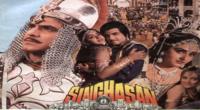
Julie (1975) Full HD Movie Download
.jpg)
Subhash Full HD Movie Download
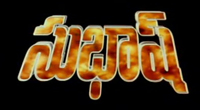
Eraser Full HD Movie Download
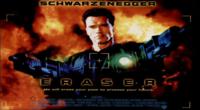
Apathbhandavudu Full HD Movie Download
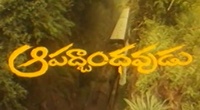
Addhuri: Achhu-Rachchu Love Story Full HD Movie Download
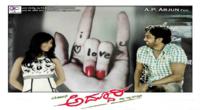
Rajakali Amman Full HD Movie Download
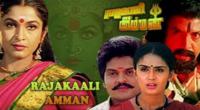
Seema Simham Full HD Movie Download
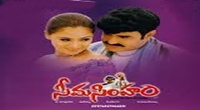
Tantra Mantra Full HD Movie Download
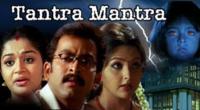
Crime File Full HD Movie Download
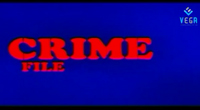
Chinna Kannamma Full HD Movie Download
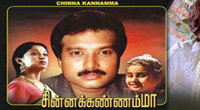
Radha Tara Vina Mane Gamtu Nathi Full HD Movie Download
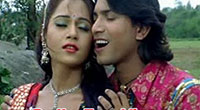
Bhale Krishnadu Full HD Movie Download
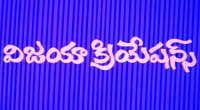
Ravi I Love You Full HD Movie Download
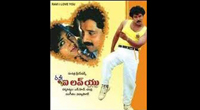
Rowdilaku Rowdilu Full HD Movie Download
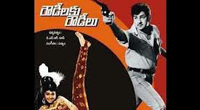
Kalavari Kodallu Full HD Movie Download
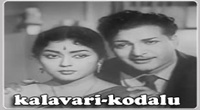
Nandha Full HD Movie Download
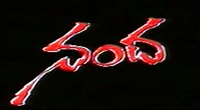
Neramu Siksha Full HD Movie Download
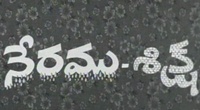
Mujhse Dosti Karoge Full HD Movie Download
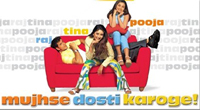
Download latest Movie from bollywood
- 1> baaghi 3
- 2> THE SKY IS PINK MOVIE FULL STORY AND REVIEW
- 3> Luka Chuppi
- 4> TO ALL THE BOYS I’VE LOVED BEFORE
- 5> Kabir Singh
- 6> Street Dancer 3D
- 7> Simmba
- 8> Gone Girl
- 9> The Girl Who Lived
- 10> Ludo
- 11> DILWALE DULHANIA LE JAYENGE
- 12> GUILTY
- 13> The Godfather
- 14> Adventures of Rusty
- 15> Sooryavanshi
- 16> Satyameva Jayate 2
- 17> Thappad
- 18> Bhool Bhulaiyaa 2
- 19> KGFChapter 2
- 20> Mardaani 2
- 21> Pinjar
- 22> Shivaji maharaj
- 23> Ek Villian 2
- 24> Hungama 2
- 25> Divergent
- 26> Mumbai Saga
- 27> The Internship
- 28> HIT (telugu)
- 29> Panga
- 30> The perfect date
- 31> 16 December
- 32> Gopala Gopala (Telugu)
- 33> Brahmastra
- 34> Gangubai Kathiawadi
- 35> Manmadhudu
- 36> Nenu local
- 37> Mahanati
- 38> Shatamanam bavathi
- 39> Lagaan
- 40> After
- 41> MOM
- 42> Shamshera
- 43> Raguvaran BTech
- 44> Khakee
- 45> The villain
- 46> OM
- 47> Mr. perfect
- 48> Bueatifull mind
- 49> Hichki
- 50> Gabbar Singh
- 51> Jogi
- 52> Before Sunrise
- 53> Before Sunset
- 54> Before Midnight
- 55> The Big Bull
- 56> Top Gun: Maverick
- 57> The Purge
- 58> The Sky is Pink
- 59> Laxmmi Bomb
- 60> Sadak 2
- 61> Sufna
- 62> Prithviraj
- 63> PK
- 64> Coolie No 1(2020)
- 65> Black Widow
- 66> Dear Zindagi
- 67> Dil Bechara
- 68> PHIR HERA PHERI
- 69> WAR
- 70> Dostana
- 71> RRR: Roudram Ranam Rudhiram
- 72> Maidan
- 73> Dabbang 3
- 74> Chhalaang
- 75> life as we know it
- 76> SherShaah
- 77> Sandeep Aur Pinky Faraar
- 78> Event Horizon
- 79> 83
- 80> Radhe: Your Most Wanted Bhai
- 81> Gunjan Saxena: The Kargil Girl
- 82> Mr India
- 83> Vivah
- 84> Anokha Bandhan
- 85> Ghost
- 86> Bhoot: Part One - The Haunted Ship
- 87> Haseen Dilruba
- 88> Laal Singh Chaddha
- 89> Qismat
- 90> Rajput
- 91> Drive
- 92> Dil Chahta Hai
- 93> Dil Ki Baazi
- 94> Dil Ka Rishta
- 95> Teesri Manzil
- 96> Dil
- 97> Love Aaj Kal
- 98> Khaali Peeli
- 99> Bunty Aur Babli 2
- 100> Atrangi Re
- 101> Gulabo Sitabo
- 102> Jodi
- 103> Suraj Pe Mangal Bhari
- 104> Deewana
- 105> Attack
- 106> Sardar Udham Singh
- 107> Toofan
- 108> THE LOVEBIRDS
- 109> Jersey
- 110> Ginny Weds Sunny
- 111> Thalaivi
- 112> Shiddat
- 113> Angels vs Zombies
- 114> Koi Mil Gya
- 115> Thank God
- 116> Bhuj: The Pride of India
- 117> Hum Aapke Hain Kaun
- 118> The Platform
- 119> Bird Box
- 120> Roohi Afzana
- 121> Torbaaz
- 122> Nikamma
- 123> World War Z
- 124> Extraction
- 125> Train to Busan
- 126> Life of Pi
- 127> SHAADI MEIN JROOR AANA
- 128> Himmat Aur Mehnat
- 129> To All The Boys: P.S. I Still Love You
- 130> Mimi
- 131> Good Newwz
- 132> Shubh Mangal Zyada Saavdhan
- 133> Raabta
- 134> Harry Potter and the Philosopher's Stone
- 135> Harry Potter and the Chamber of Secrets
- 136> Chhapaak
- 137> War of the Worlds
- 138> Harry Potter and the Prisoner of Azkaban
- 139> Harry Potter and the Goblet of Fire
- 140> MURDER MYSTERY
- 141> Shakuntala Devi
- 142> Bachchan Pandey
- 143> Jayeshbhai Jordar
- 144> Sheer Qorma
- 145> Saina
- 146> 'O' Pushpa I hate tears
- 147> Kedarnath
- 148> MS Dhoni The Untold Story
- 149> Chhichhore
- 150> Badhaai Ho
- 151> Unstoppable
- 152> Oz the Great And Powerful
- 153> The Girl on the Train
- 154> Haathi Mere Saathi 2020
- 155> The Conjuring: The Devil Made Me Do It
- 156> Gandhi Se Pehle Gandhi
- 157> The Song of Scorpions
- 158> Srimanthudu
- 159> Hello Guru Prema Kosame
- 160> Beauty and The Beast
- 161> Black Panther
- 162> Charlie and the Chocolate Factory
- 163> Bole Chudiyan
- 164> Fidaa
- 165> Duvvada Jagannadham
- 166> Bruce Lee: The Fighter
- 167> Hyper
- 168> Yaara
- 169> Red (2020)
- 170> Shivam
- 171> That Is Mahalakshmi
- 172> Nishabdham
- 173> Aashram 2020 web series
- 174> Laxmii
- 175> Mismatched
- 176> STUDENT OF THE YEAR 2
- 177> NAIL POLISH
- 178> Ramprasad Ki Tehrvi
- 179> KAAGAZ
- 180> 12 o Clock
- 181> The Power
- 182> bolo hau
- 183> Tribhanga
- 184> JAMUN
- 185> Madam Chief Minister
- 186> Maasaab
- 187> Aadhaar
- 188> Tanhaji
- 189> Bhaagi 3
- 190> Bhootnath
- 191> MALANG
- 192> Jai Mummy Di
- 193> Haathi Mere Saathi 2021
- 194> Shakeela
- 195> Unpaused
- 196> Annayya
- 197> Vamsoddharakudu
- 198> Mrugaraju
- 199> Narasimha Naidu
- 200> Sankranti
- 201> Manasu Maata Vinadhu
- 202> Anjaane
- 203> Apaharan
- 204> Bachke Rehna Re Baba
- 205> Bewafaa
- 206> Roohi
- 207> Radhe
- 208> Zindagi Khoobsoorat Hai
- 209> Yeh Mohabbat Hai
- 210> Yeh Kya Ho Raha Hai?
- 211> The Tomorrow War
- 212> DehradunDiary
- 213> Meri Shaadi Karaoo
- 214> Matruu Ki Bijlee Ka Mandola
- 215> No One Killed Jesica
- 216> Aag Ka Goola
- 217> Eight Million Dollars
- 218> Three Hundred
- 219> Cats and Dog
- 220> Decoy
- 221> Gold Rush
- 222> You Have Got Mail
- 223> Final Destination three
- 224> Tofan
- 225> Jungle
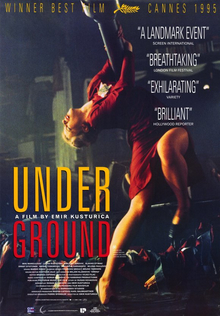 Story of movie Underground 1995 Film :
Story of movie Underground 1995 Film : 